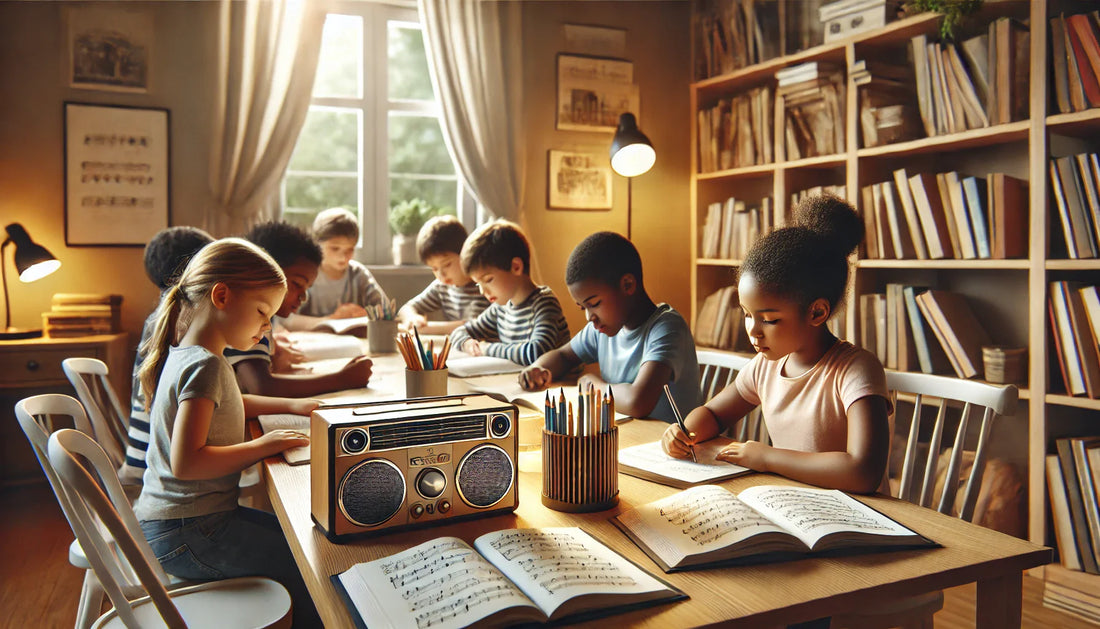
Does Baroque or Classical Music Make You Smarter?
Share
Does Baroque or Classical Music Make You Smarter?
(by Carmen Ziarkowski)

Recent articles have convinced many in the public that listening to a few minutes of Mozart or other complex music daily will increase your child's (or your) IQ. Before we delve into this belief, we need to first see what one's IQ really means and whether it measures mental intelligence.
The Intelligence Quotient measures the ability of a person to function in social situations relative to others of the same age using questions that test one's mental skills, mental acuity or academic prowess. An IQ test demonstrates a good overall view of general intelligence. In other words, the Intelligence Quotient Test (IQ) is the "mental" age divided by one's chronological age.
It has been shown that there is a strong correlation between IQ levels and the speed at which one processes information. The following are guidelines used by educators when dealing with gifted children. (Interestingly, 68% of the population scores an IQ between 85-115.
MG - Moderately Gifted (IQ 130 - 145) (2 standard deviations from the mean)
HG - Highly Gifted = (IQ 145 - 160) (3 standard deviations from the mean)
EG - Extremely Gifted = (IQ 160 - 180) (4 standard deviations from the mean)
PG - Profoundly Gifted = (IQ 180+) (5 or more standard deviations from the mean)
(One standard deviation is 15 points)
Integrating an "arts" program (including music) into your school schedule has far reaching implications. Across the board, studies have shown correlations between implementing musical arts and the the performance of your children across all other academic subjects.
In particular math scores improve substantially when children are exposed to music over a period of time.
While we can't promise an IQ of 180, the following is a list of some of the research associated with music.
What listening to music has shown: (Studies)

The following studies used instrumental music, which included classical, "easy listening" or familiar melodies.
In one particular study, 21% of eighth-grade music students from low economic households scored high in math compared to 11% of non-musical and low-economic households. By 12th grade, these figures were 33% and 16%, respectively.(1)
In another study by the same researchers, it was noted "… that children are more engaged and cognitively involved in school when the arts are part of, or integrated into, the curriculum. (2)
Students (six to nine-year-olds) dramatically improve reading and language development as they were exposed to music while learning new words (3)
In a study reported in Nature, five to seven-year-olds were subject to a seven-month training period where their visual-spatial abilities were tested. The results suggested that music improved reading and math skills which motivated the children to move on to more difficult tasks to acquire other difficult skills. (4)
Children who take music lessons (keyboard in this study) improve spatial-temporal areas of the brain. The study compared children who took computer lessons with children who took piano lessons. The results demonstrated in the children who took piano lessons, there was an improvement in the neural circuitry in locations in the brain that are not associated with music. It was proposed that curricula that rely upon spatial-temporal reasoning, such as mathematics and science, could greatly improve by exposure to music. (5)
Sleep improves and pain decreases in post-operative subjects as a result of music intervention on patients after surgery. (6)
College students who had been given musical training before the age of 12 significantly remembered more vocabulary words than those students who had no music training. (7)
Having music in the background while one studies greatly improves ability to recall the information studied. (8)
Music improves exercise. A study reported in the International Journal of Sports Medicine indicates that there is a decrease in heart rate, blood pressure and amount of lactic acid secreted in subjects who exercised on a treadmill while listening to music. This decrease indicates that music may reduce muscle tension and stress while exercising. (9)
A study was undertaken at the University of Sweden, where 12,675 people (ages 16-74) were tested in 1982 and again in 1992. As expected, those who partook in smoking and lack of exercise had higher mortality rates. It was found that those who participated in cultural events such as music or reading and/or played an instrument (or sang) greatly improved their health and longevity. (10)
There is a connection between heavy metal/rap and psychosocial turmoil. According to a report in the journal, Adolescence, the authors studied the relationship between listening to heavy metal/rap and poor behavior. Their conclusions pointed to the thought that heavy metal/rap led to poor behavior and psychological problems at home and in society. More research is needed on this study because it could be that this behavior leads to listening to this kind of music and not the reverse. (11)
Color the Classics takes your children from the Baroque through Romantic musical periods that will offer an enriching experience for children that will inspire creativity but also support cognitive development.
References
1) National Center for Education Statistics (NCES) and supported by the National Endowment for the Arts (NEA).
2) Arts Education Partnership" report titled "Arts Integration Frameworks, Research, and Practice: A Literature Review."
3) Bygrave, P.L. (1995-1996). Development of receptive vocabulary skills through exposure to music. Bulletin of the Council for Research in Music Education no. 127, Winter, pg. 28-34]
4) Nature 381, 284 ( 23 May 1996 ) Scientific Correspondence (from the Nature Archive: January 1987 - December 1996)
5) Rauscher, F. H., Shaw, G.L., Levine, L.J., Wright, E.L., Dennis, W.R., Newcomb, R.L. (1997). Music training causes long-term enhancement of preschool children's spatial-temporal reasoning. Neurological Research, 19: 2-8.
6) Zimmerman, L., Nieveen, J., Barnason, S., Schmaderer, M. (1996). The effects of music interventions on postoperative pain and sleep in coronary artery bypass graft (CABG) patients. Scholarly Inquiry for Nursing Practice, Summer, 10:171-174.
7) Chan, A.S., Ho, Y-C. & Cheung, M-C. (1998). Music training improves verbal memory. Nature, 396:128.
8) Cockerton, T., Moore , S., & Norman, D. (1997). Cognitive test performance and background music. Perceptual and Motor Skills, 85:1435-1438.
9) Szmedra, L., & Bacharach, D.W. (1998) Effect of music on perceived exertion, plasma lactate, norepinephrine and cardiovascular hemodynamics during treadmill running. International Journal of Sports Medicine, 19:32-37.
10) British Medical Journal, 1996, vol. 313, pgs. 1577-1580.
11) Kevin J. took and David S. Weiss, 1994, Adolescence, 29: 613-621
